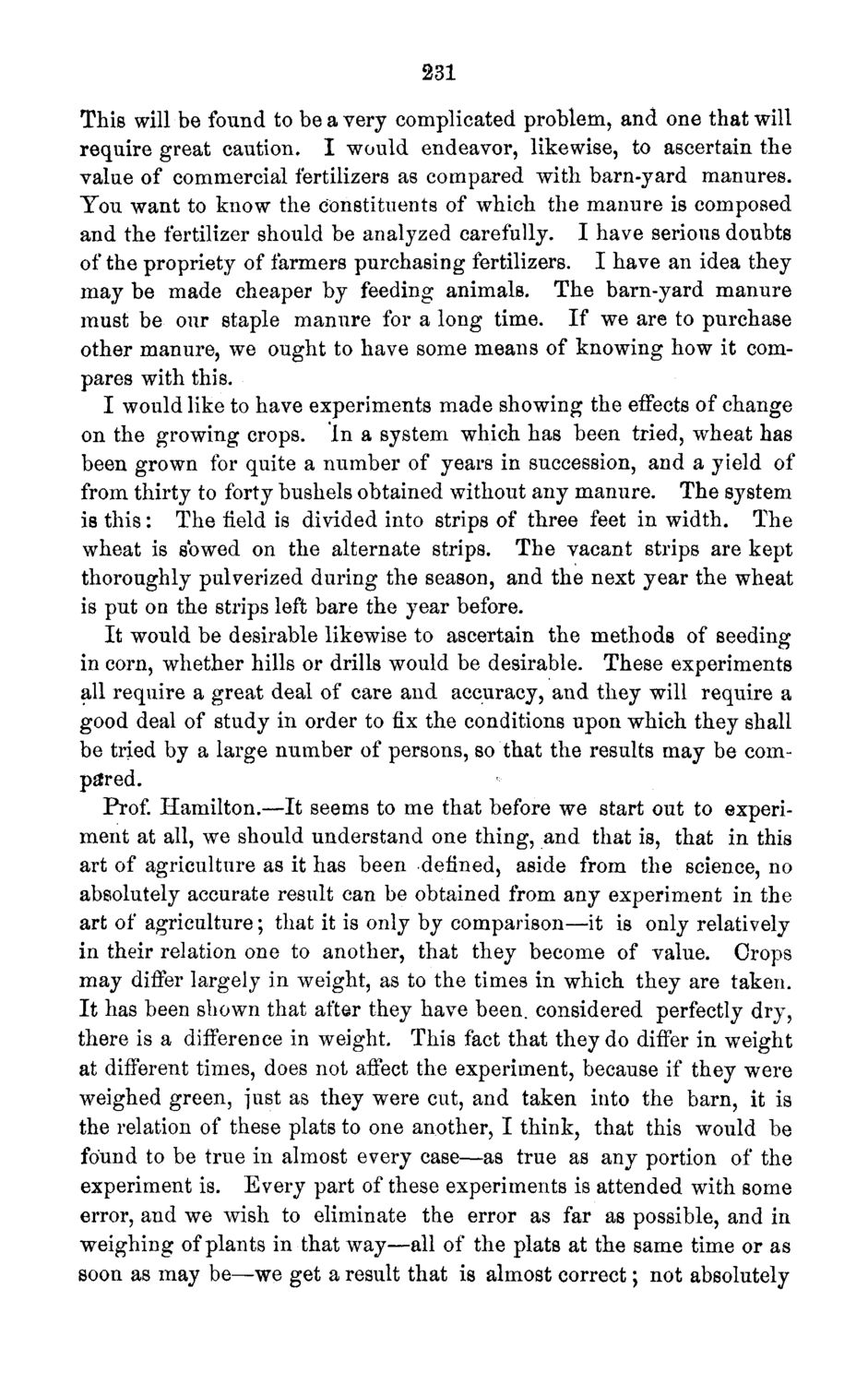| |
| |
Caption: Board of Trustees Minutes - 1871
This is a reduced-resolution page image for fast online browsing.

EXTRACTED TEXT FROM PAGE:
231 This will be found to be a very complicated problem, and one that will require great caution. I would endeavor, likewise, to ascertain the value of commercial fertilizers as compared with barn-yard manures. You want to know the constituents of which the manure is composed and the fertilizer should be analyzed carefully. I have serious doubts of the propriety of farmers purchasing fertilizers. I have an idea they may be made cheaper by feeding animals. The barn-yard manure must be our staple manure for a long time. If we are to purchase other manure, we ought to have some means of knowing how it compares with this. I would like to have experiments made showing the effects of change on the growing crops. In a system which has been tried, wheat has been grown for quite a number of years in succession, and a yield of from thirty to forty bushels obtained without any manure. The system is this: The field is divided into strips of three feet in width. The wheat is sowed on the alternate strips. The vacant strips are kept thoroughly pulverized during the season, and the next year the wheat is put on the strips left bare the year before. It would be desirable likewise to ascertain the methods of seeding in corn, whether hills or drills would be desirable. These experiments all require a great deal of care and accuracy, and they will require a good deal of study in order to fix the conditions upon which they shall be tried by a large number of persons, so that the results may be compared. Prof. Hamilton.—It seems to me that before we start out to experiment at all, we should understand one thing, and that is, that in this art of agriculture as it has been defined, aside from the science, no absolutely accurate result can be obtained from any experiment in the art of agriculture; that it is only by comparison—it is only relatively in their relation one to another, that they become of value. Crops may differ largely in weight, as to the times in which they are taken. It has been shown that after they have been, considered perfectly dry, there is a difference in weight. This fact that they do differ in weight at different times, does not affect the experiment, because if they were weighed green, just as they were cut, and taken into the barn, it is the relation of these plats to one another, I think, that this would be found to be true in almost every case—as true as any portion of the experiment is. Every part of these experiments is attended with some error, and we wish to eliminate the error as far as possible, and in weighing of plants in that way—all of the plats at the same time or as soon as may be—we get a result that is almost correct; not absolutely
| |